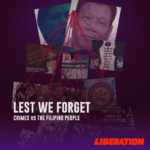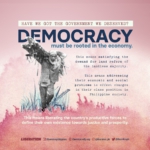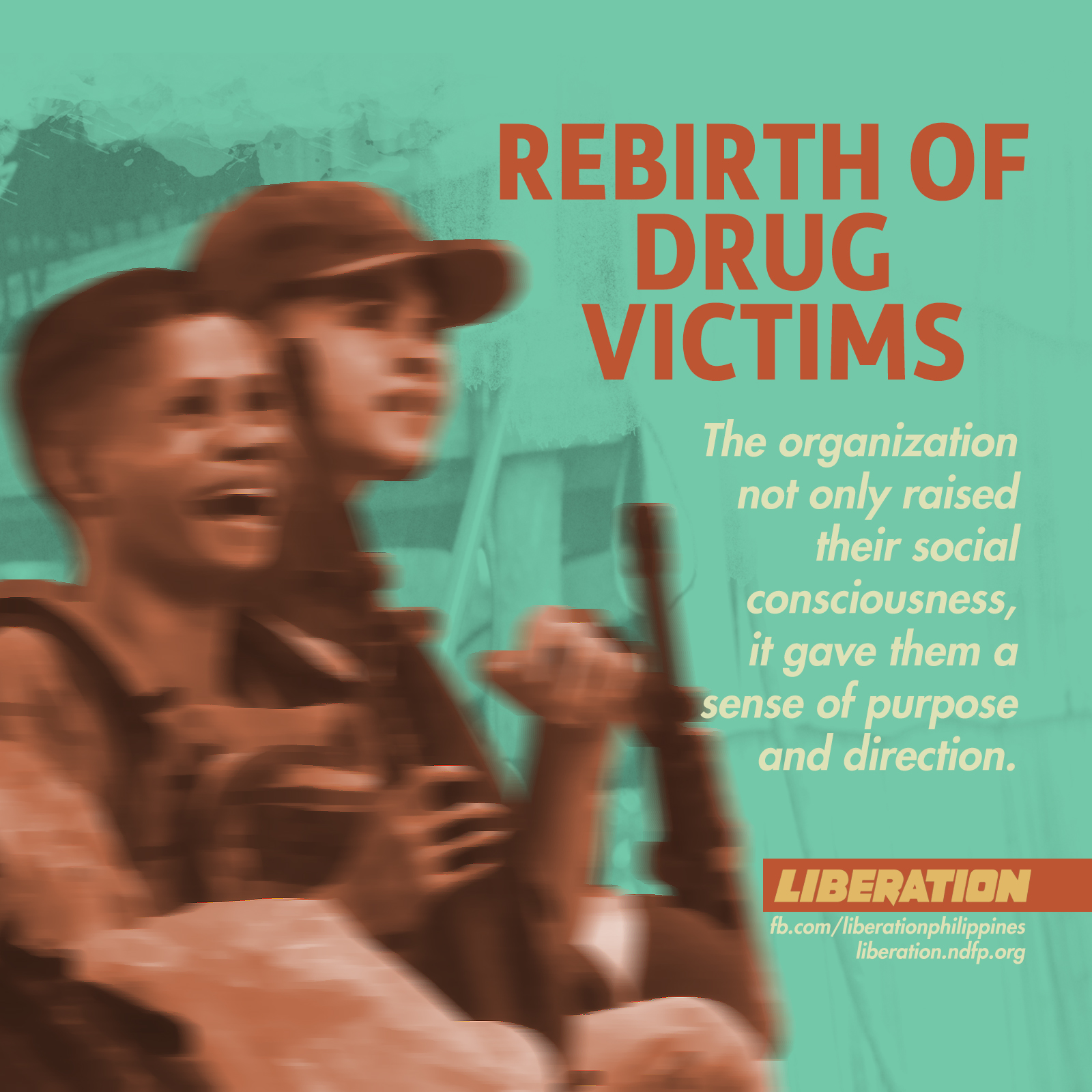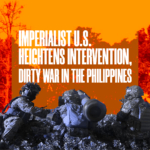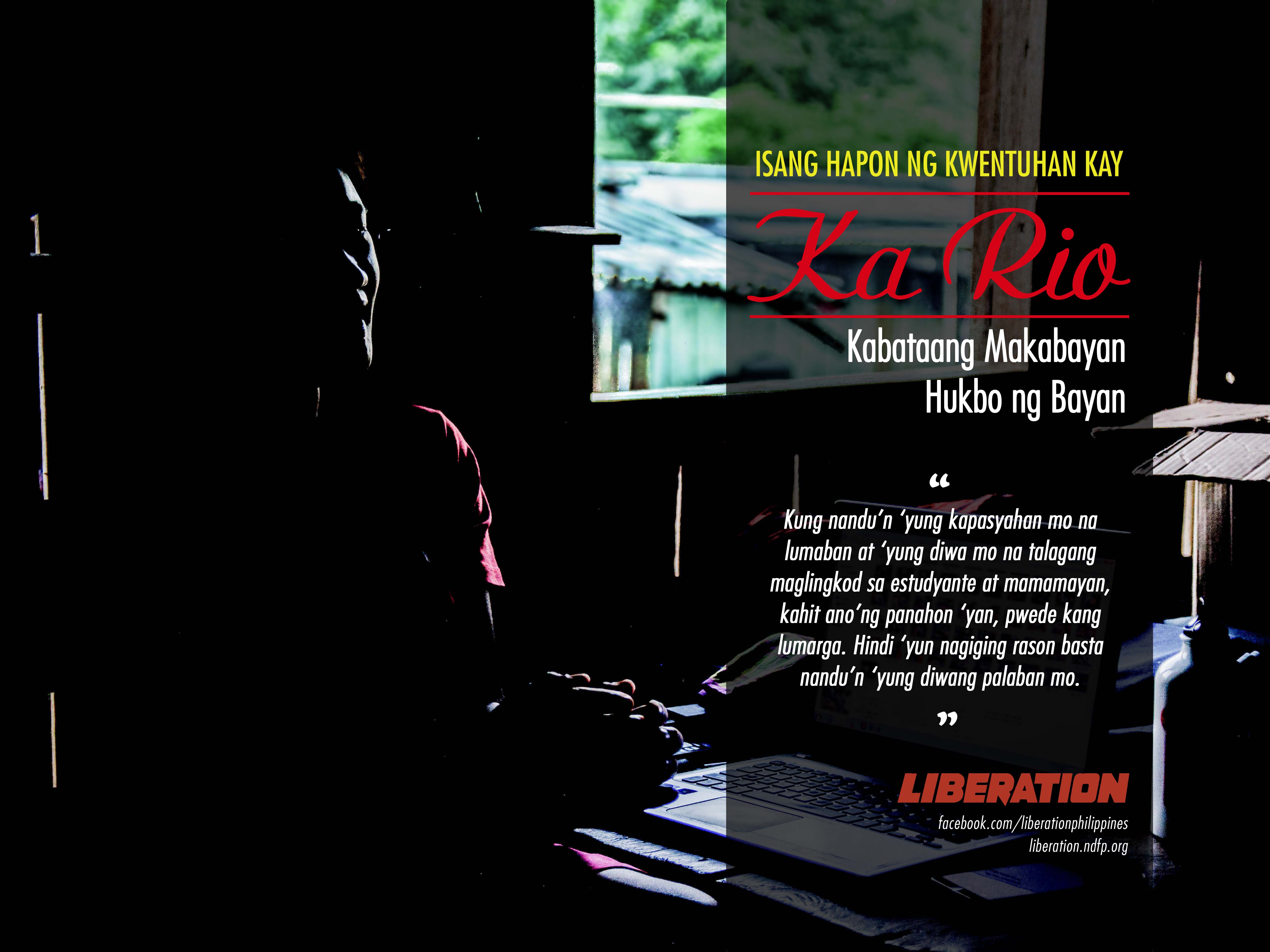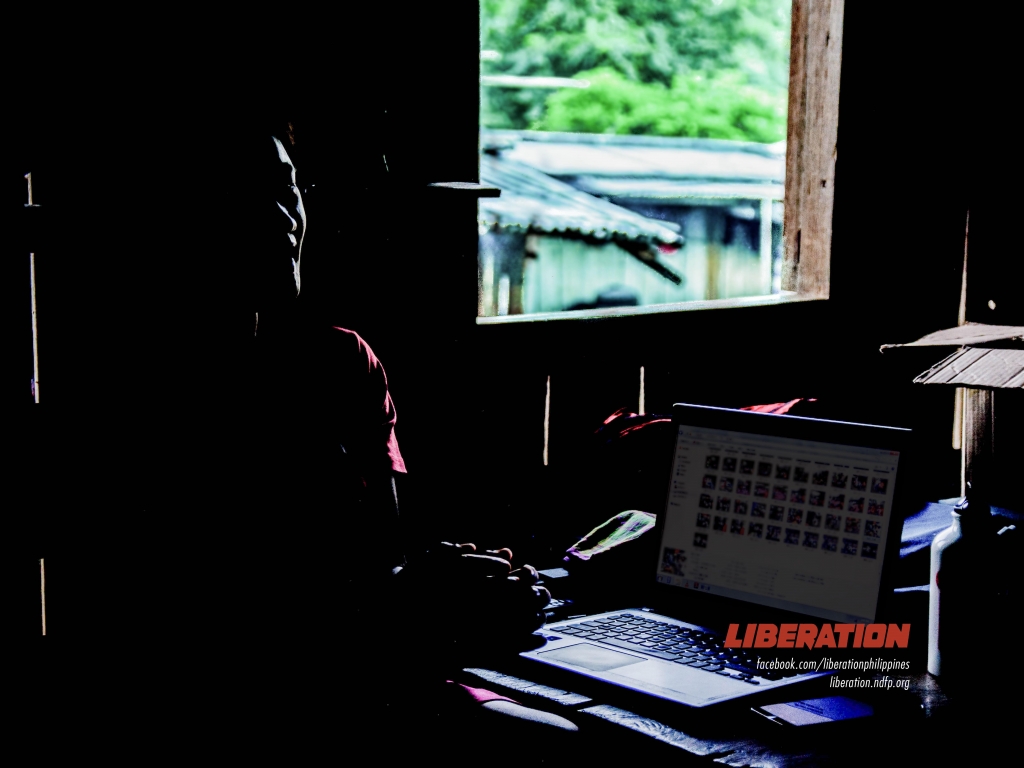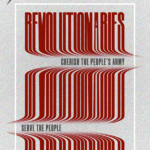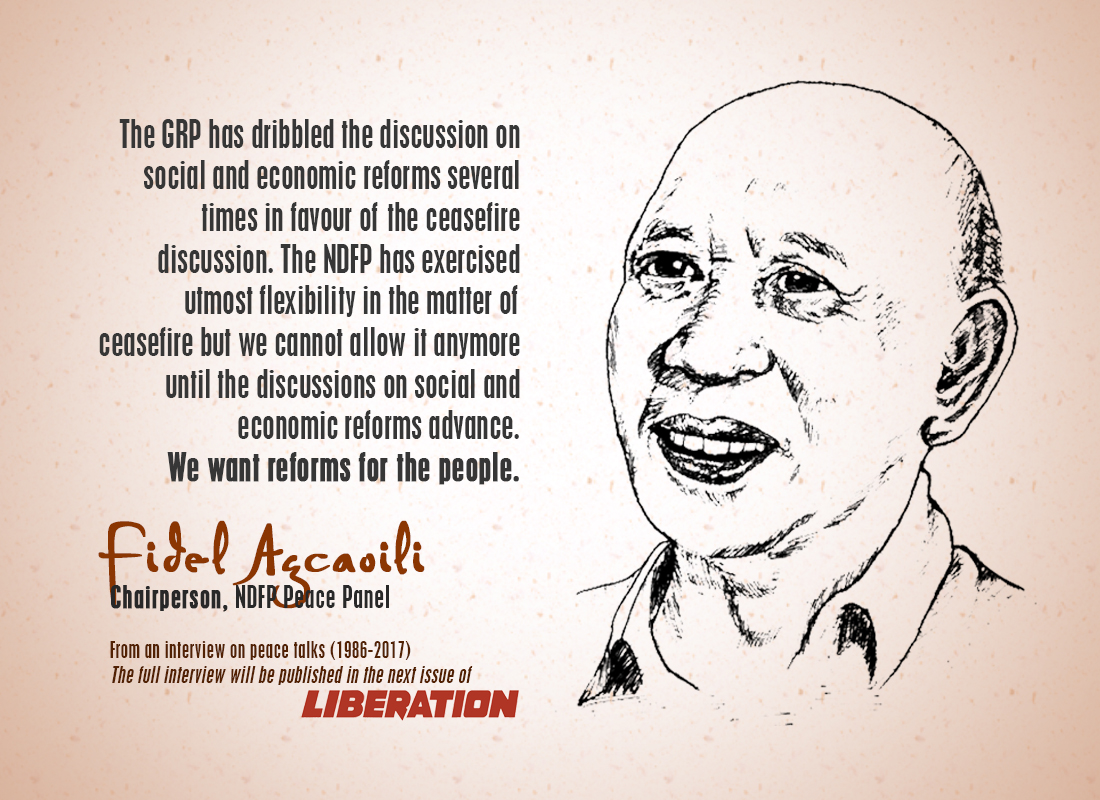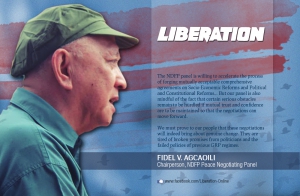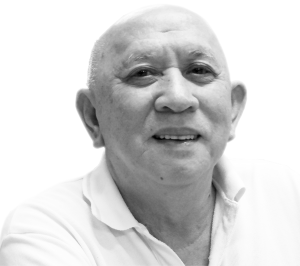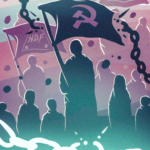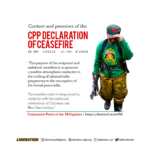Duterte’s Charter Change Exacerbates Repression and Exploitation
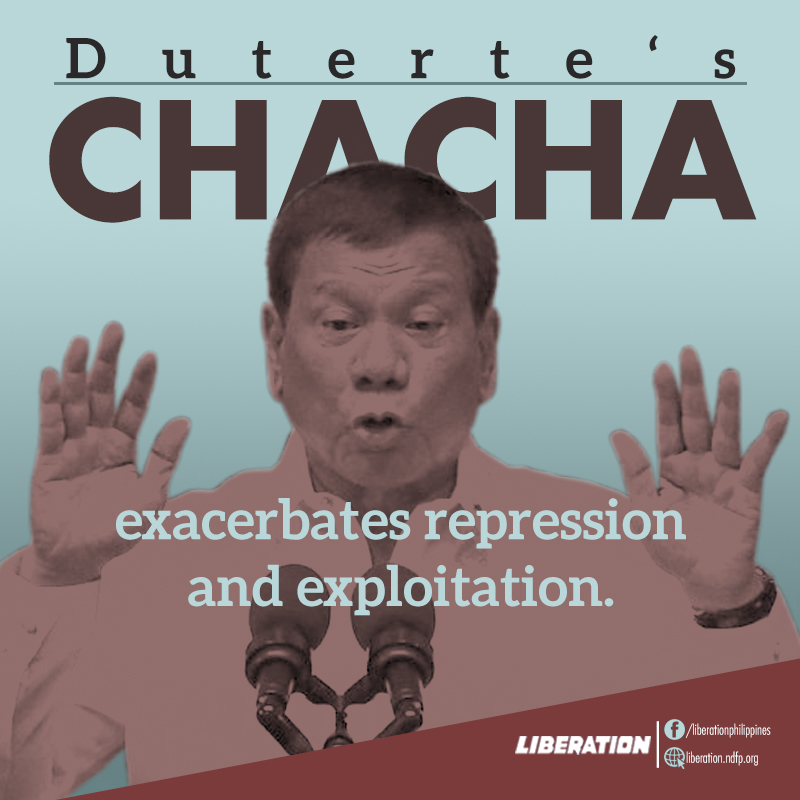
COMMENTARY (Part 1)
by the Liberation staff
The three pending proposals for Duterte’s Charter Change (Cha-Cha) is not at all about the shifting of the form of government from unitary to federal system nor the sharing to the regions of power, wealth and development long centralized in imperial Manila. Neither it is a solution to the problems besetting the country. Duterte’s Charter Change is a ruse to lay the path for an authoritarian rule. It is anti-people, pro-oligarchs and foreign transnational corporations, and for imperialist hegemony. It is an ultimate plan to cow the people to submission as they are stripped off their fundamental rights.
Duterte’s Cha-Cha will exacerbate repression and exploitation and continued sufferings of the poor majority.

